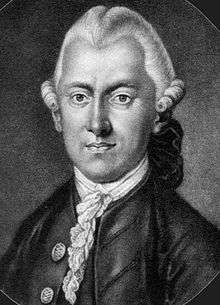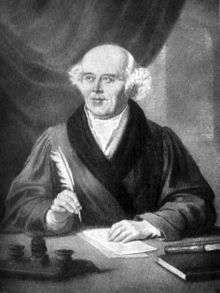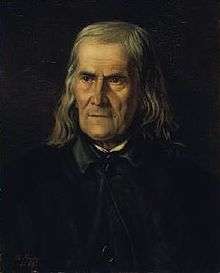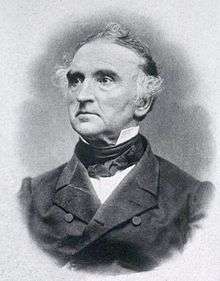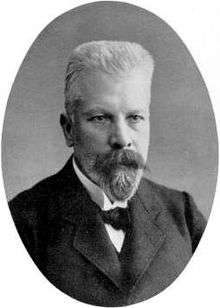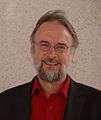University of Erlangen-Nuremberg
| Friedrich-Alexander-Universität Erlangen-Nürnberg | |
|
Friedrich-Alexander University seal | |
| Latin: Universitas Friderici Alexandriae | |
Former names | Friedrich-Alexander-Universität Erlangen |
|---|---|
| Type | Public |
| Established |
1742 (first) November 4, 1743 (moved) [1] |
| Budget | €354 million (2015)[2]plus€180 million (External funding 2013)[3] |
| Chancellor | vacant[4] |
| President | Prof. Dr.-Ing. Joachim Hornegger[4] |
| Vice-president |
1. Prof. Dr. Antje Kley (Vice President for Education of Teachers and Diversity) 2. Prof. Dr. Günter Leugering (Vice President for International Relations) 3. Prof. Dr. Nadine Gatzert (Vice President for Research) 4. Prof. Dr. Friedrich Paulsen (Vice President for Teaching) [4] |
Academic staff | 656 (professors),[3] 3,404 (other)[3] |
Administrative staff | 2,258 (without hospitals) [3] |
| Students | 39,085 (WS 2014/15) [3] |
| 663 (2013) [3] | |
| Location |
Erlangen and Nuremberg, Bavaria, Germany 49°35′52.5″N 11°0′17.17″E / 49.597917°N 11.0047694°ECoordinates: 49°35′52.5″N 11°0′17.17″E / 49.597917°N 11.0047694°E |
| Campus | Urban |
| Colors | Blue |
| Nickname | FAU |
| Affiliations |
Domestic: 1. Bavarian State Ministry for Science, Research and Art 2. DFG 3. Excellence Universities International: 1.Top Industrial Managers for Europe 2. SEFI |
| Website |
fau |
 | |
Friedrich-Alexander University Erlangen-Nürnberg (German: Friedrich-Alexander-Universität Erlangen-Nürnberg, FAU) is a public research university in the cities of Erlangen and Nuremberg in Bavaria, Germany. The name Friedrich-Alexander comes from the university's first founder Friedrich, Margrave of Brandenburg-Bayreuth, and its benefactor Christian Frederick Charles Alexander, Margrave of Brandenburg-Ansbach.[1]
In Germany, traditional liberal arts universities do not usually have an engineering school or department. However, FAU does have a distinct engineering faculty.
FAU is the second largest state university in the state Bavaria. It has 5 faculties, 23 departments/schools, 30 clinical departments, 19 autonomous departments, 656 professors, 3,404 members of academic staff and roughly 13,000 employees.[5]
In winter semester 2014/15 around 39,085 students (including 3,556 foreign students) enrolled in the university in 239 fields of study, with about 2/3 studying at the Erlangen campus and the remaining 1/3 at the Nuremberg campus. These statistics put FAU in the list of top 10 largest universities in Germany.[3]
In 2013, 5251 students graduated from the university and 663 doctorates and 50 post-doctoral theses were registered. Moreover, FAU received 171 million Euro (2013) external funding in the same year, making it one of the strongest third-party funded universities in Germany.[3]
In 2006 and 2007, as part of the national excellence initiative, FAU was chosen by the German Research Foundation as one of the winners in the German Universities Excellence Initiative.[6] FAU is also a member of DFG (Deutsche Forschungsgemeinschaft)[7] and the Top Industrial Managers for Europe[8] network.
In Academic Ranking of World Universities for year 2014, FAU ranked second among German universities in Engineering/Technology and Computer Sciences group for all four ranking parameters TOP, FUN, HiCi and PUB.[9][10][11][12]
History

The university was founded in 1742, in Bayreuth by Frederick, Margrave of Brandenburg-Bayreuth, and moved to Erlangen in 1743. Christian Frederick Charles Alexander, Margrave of Brandenburg-Ansbach (one of the two namesakes of the institution) provided significant support to the early university. From the beginning, the university was a Protestant institution, but over time it slowly secularized. During the Nazi era, the university was one of the first that had a majority of Nazi supporters in the student council. In 1961, the business college in Nuremberg was merged with the university in Erlangen, so that now the combined institution has a physical presence in the two cities. An engineering school was inaugurated in 1966. In 1972, the school of education (normal school) in Nuremberg became part of the university.

Timeline
Below is a short timeline of FAU from its inception to its present form:
- 1700–1704: The Schloss of the Margraves at Erlangen is built.
- 1743: Friedrich, Margrave of Brandenburg-Bayreuth, issues an edict whereby the university recently founded in Bayreuth is transferred to Erlangen. It has the four faculties of Protestant Theology, Jurisprudence, Medicine and Philosophy.
- 1769: The University at Erlangen is given the new name of Friedrich-Alexander-Universität in honour of Alexander, Margrave of Ansbach and Bayreuth.
- 1818: The library of the University of Altdorf, dissolved in 1809, is moved to Erlangen.
- 1824: The first hospital is built.
- 1825: The University moves into the Schloss.
- 1927: Science is taken out of the Faculty of Arts thus creating the new Faculty of Science.
- 1961: The FAU acquires a further faculty through merger with the Nuremberg College of Economics and Social Sciences (founded in 1919). The University's name is now Friedrich-Alexander University Erlangen-Nürnberg.
- 1966: Faculty of Engineering is established. (FAU is thus the first of the traditional universities of the old federal republic to incorporate engineering as an independent faculty.)
- 1972: The Teacher Training College in Nuremberg is incorporated into the Faculty of Education.
- 1993: The FAU celebrates its 250th anniversary.
- 1994: The Free State of Bavaria purchases for the university 4.4 hectares of land in Erlangen previously owned by the US military. The area is now called Röthelheim Campus.
- 1995: The WiSo Faculty (Business Administration, Economics & Social Sciences) celebrates its 75th anniversary.
- 2000: The Bavaria-California Technology Centre opens its headquarters at the University of Erlangen-Nürnberg.
- 2000: Inauguration of the Research Centre in Clinical Molecular Biology in Erlangen.
- 2001: Opening of the Röthelheim Campus on the site of the old artillery barracks.
- 2004: Inauguration of the new building at the WiSo Faculty of Business Administration, Economics & Social Sciences in Nuremberg.
Faculties

In February 2007, the senate of the university decided upon a restructuring into five faculties.[13] Since October 2007, the FAU consists of:[14]
- Faculty of Humanities, Social Sciences, and Theology
- Faculty of Business, Economics, and Law
- Faculty of Medicine
- Faculty of Sciences
- Faculty of Engineering
The following faculties were part of the university (sorted in the order in which they were founded):
- Theological faculty
- Law faculty
- Medical faculty
- Philosophical faculty I (philosophy, history, and social sciences)
- Philosophical Faculty II (languages and literature)
- Science faculty I (mathematics and physics)
- Science faculty II (biology, chemistry, and pharmaceutics)
- Science faculty III (geography, geology/mineralogy/paleontology)
- Business- and social sciences faculty (1961) in Nuremberg
- Technical Faculty (1966)
- Pedagogical faculty (1972) in Nuremberg


Faculty of Engineering
Inception
In 1962, after lengthy debate, the Bavarian parliament decided to establish a Faculty of Engineering in Erlangen. Then, the University of Erlangen thus won out against the city of Nuremberg, which, for decades, had been demanding the establishment of a college of engineering in Nuremberg. Since the expansive areas of building land required for this project were not available in the center of Erlangen, the foundations for a new university campus were laid in the south east of the town in 1964. The formal establishment of the Faculty of Engineering, then the seventh faculty at the University, took place in 1966. What was unique at the time was that the various engineering departments were subsumed, as a faculty, into the main university rather than constituting an independent university.[1][15]
Present status
The Faculty of Engineering at FAU is a young educational and research institution. Since its foundation in 1966, the Faculty has gained an outstanding national and international reputation. The Faculty boasts expertise in a range of future-oriented areas of study and research across the five departments:
- Electrical, Electronic and Communication Engineering
- Chemical and Biological Engineering
- Materials Science and Engineering (This Department was ranked at 10th best in the world according to the Quantitative Ranking of Engineering Disciplines (QRED).)[16][17]
- Mechanical Engineering
- Computer Science
The Faculty has close connections both with other natural sciences and with traditional subjects at the university. The Faculty of Engineering currently concentrates on the following research fields:
- New Materials and Processes
- Life Science Engineering and Medicine Technology
- Energy Technology and Mobility
- Modeling and Simulation
- Optics and Optical Technologies
- Information- and Communication Technologies
- Micro-/Nano-electronics
The Faculty of Engineering has a firm commitment to the unity and freedom of teaching and research as an essential precondition for scientific progress. The prioritizing of teaching and research is realized through the principle of teaching based on research, and the faculty plays a significant role in social and technological developments. Faculty promotes knowledge transfer, mobility and exchange within research and teaching in cooperation with numerous universities worldwide. Partnerships with businesses, research institutions, as well as international educational and cultural institutes are well established.
Research[18]
Major research areas
FAU claims leadership in a number of research topics. The current eight such major research areas are:[19]
- New Materials and Processes
- Optics and Optical Technologies
- Molecular Life Science and Medicine
- Health Technology
- Electronics, Information and Communication
- Energy, Environment and Climate
- Language - Culture - Region
- Cohesion – Transformation – Innovation in Law and Economics
Excellence initiative[20]
The Excellence Initiative by the German federal and state governments to promote science and research at German universities aims to promote cutting-edge research and to strengthen the higher education and research in Germany to improve its international competitiveness and to make top performers in academia and science visible. As part of this initiative, FAU was awarded the contract for the Erlangen Graduate School in Advanced Optical Technologies (SAOT), which received 1.9 million euros of annual funding for the next five years. The Cluster of Excellence 'Engineering of Advanced Materials and Processes' (EAM) was also established at FAU as part of the initiative and has been approved in the second round. EAM is funded with 40 million euros.[21]
Cluster of Excellence 'Engineering of Advanced Materials'[22][23][24]
See for more information: Cluster of Excellence Engineering of Advanced Materials, FAU
The Cluster of Excellence 'Engineering of Advanced Materials – Hierarchical Structure Formation for Functional Devices' (EAM) is the only interdisciplinary research collaboration of its type in Germany to focus on the investigation of functional materials and their processing at all length scales. The main research focus is on the fundamental and applied aspects of designing and creating novel high-performance materials. It is part of the Excellence Initiative of the German Research Foundation.
Erlangen Graduate School in Advanced Optical Technologies[25][26]
See for more information: Advanced Optical Technologies, FAU
The Erlangen Graduate School in Advanced Optical Technologies (SAOT) was founded in 2006. SAOT’s scientific focus lies on optics and optical technology, two fields which are considered key technologies of the 21st century. SAOT offers an excellent interdisciplinary research environment, which is firmly grounded in a vast network of cooperations with internationally leading experts. At the Graduate School, young scientists work at the interface of a variety of disciplines such as materials science, metrology, medicine and processing technology. With their research, these young scientists make a considerable contribution to optical technologies being used to their full potential. SAOT is currently funded with seven million euros.
Research institutions
Central institutions[27]
- Cluster of Excellence 'Engineering of Advanced Materials' (EAM)
- Erlangen Graduate School in Advanced Optical Technologies
- Bavaria California Technology Center (BaCaTeC)
- Central Institute for Research on Teaching and Learning (ZiLL)
- Institute of Advanced Materials and Processes (ZMP)
- Center for Area Studies
- Center for Teacher Education
- Center for Applied Ethics and Science Communication
- FAU Graduate School
- Bavarian Academic Center for Latin America (BayLat)
- FAU Campus Busan
- Central Institute of Healthcare Engineering (ZIMT)
- Center ofor Scientific Computing (ZISC)
- Central Institute for Anthropology of Religion(s) (ZAR)
Interdisciplinary centers[28]
- Interdisciplinary Center for Digital Humanities and Social Sciences
- Interdisciplinary Center for Public Health
- Interdisciplinary Media Research Center
- Interdisciplinary Center for Islamic Religious Studies
- Interdisciplinary Center for Gerontology
- Interdisciplinary Center for Dialects and Language Variation (IZD)
- Interdisciplinary Center Old World
- Interdisciplinary Center for European Medieval and Renaissance Studies (IZEMIR)
- Interdisciplinary Center for Clinical Research (IZKF)
- Interdisciplinary Center Aesthetic Education
- Emmy-Noether Center for lgebra representation theory with emphasis
- Interdisciplinary Center Literature and Contemporary Culture
- Interdisciplinary Center Embedded Systems (ESI Embedded Systems Institute)
- Interdisciplinary Center for ophthalmic Preventive Medicine and Imaging
- Interdisciplinary Center Erlangen Catalysis Resource Center (ECRC)
- Interdisciplinary Center for Science Edition
- Interdisciplinary Center for Neurosciences (IZN)
- Interdisciplinary Center for Research on Lexicography, Valency and Collocation
- Interdisciplinary Center for Interface-Controlled Processes (IC-ICP)
- Erlangen Center of Plant Science (ECROPS)
- Interdisciplinary Center for Molecular Materials
- The Labor and Socio-Economic Research Center (LASER)
- Emil Fischer Center
- Medical Immunology Campus Erlangen (MICE)
- Erlangen Center for Infection Research (ECI)
Research centers & centers of excellence[29]
- Engineering of Advanced Materials (Cluster of Excellence)
- Erlangen Graduate School in Advanced Optical Technologies
- Transfer Centre for Research and Development in Electronic Production (FOWEP)
- Cluster mechatronik & automation
- Bavarian Lasercenter (BLZ)
- Bavarian Center for Applied Energy Research (ZAE Bayern)
- Fraunhofer Institute for Integrated Circuits (IIS)
- Fraunhofer Institute for Integrated Systems and Device Technology (IISB)
- Research Association for Molded Interconnect Devices 3-D MID e.V.
- FAU Ingolstadt Institute
- Department of European Commercial Law
- Interdisciplinary Center for Clinical Research (IZKF)
- Center of Excellence New Materials
Other associated research institutes
International Audio Laboratories Erlangen[30]
See for more information: International Audio Laboratories Erlangen
International Audio Laboratories Erlangen (better known as AudioLabs) is a joint institution of Fraunhofer Institute for Integrated Circuits and University of Erlangen-Nürnberg. The University provides six professorship positions to the research center and guarantees the scientific integration into the academic environment. Fraunhofer IIS will provide a budget to fund AudioLabs for an initial period of ten years. AudioLabs will benefit from Fraunhofer IIS’ extensive history and expertise in the field of audio and multimedia technologies. This close cooperation of both partners allows for a unique organization with competencies ranging from basic research and teaching to technology implementation in innovative multimedia systems.
AudioLabs is unique worldwide in both its mission and international approach. It is having a team of globally renowned scientists, those are working to shape the future of audio and multimedia technologies in the research areas such as audio coding, audio signal analysis and perceptual spatial audio signal processing.
AudioLabs is located on the premises of Fraunhofer IIS in Tennenlohe. Being in the vicinity of the Erlangen University and the Audio & Multimedia division of Fraunhofer IIS, this location enables close scientific collaboration in an ideal way. In addition, it allows for use of the modern infrastructure of Fraunhofer IIS including acoustics labs, recording studios or digital cinema labs.
Emerging Fields Initiative [31]
See for more information: Emerging Fields Initiative, FAU
Being one of the strongest and most reputable research university in Germany, FAU boasting numerous outstanding academic approaches and perspectives. Moreover, as a so-called full university, FAU brings all disciplines together under one roof. Thus, FAU offers perfect conditions for the generation of innovative ideas, which often emerge at the interface between several disciplines and span different fields of research. Therefore, FAU launched its Emerging Fields Initiative (EFI) in 2010. The EFI aims to promote outstanding, preferably interdisciplinary research projects at an early stage and in a flexible and non-bureaucratic way. In doing so, the EFI aims to enable renowned FAU researchers to put visionary ideas into practice and thus to react more quickly and more effectively to upcoming challenges.
University facilities[32]
- Institute for the professions
- Center for teachers and teacher education
- Collegium Alexandrinum (Public lecture series)
- Graduate School of FAU
- Regional Computing Centre Erlangen
- Sports Centre
- University language centre
- Student Service
- University library
- University clinic
- Institute of Foreign Languages and Foreign Studies at the University of Erlangen-Nürnberg
- Bavarian State Institute of Apiculture
- Bavarian Health and Food Safety
- Center for Distance Learning and Continuing Education
- Bavarian Academic Center for Latin America at the Friedrich-Alexander University Erlangen-Nürnberg (BayLAT)
Partnerships
FAU is the first German university to establish a branch campus in Busan in the Republic of Korea. FAU has contacts with approximately 500 universities all over the world, including many of the world's top universities like the University of Cambridge, Duke University, UCL, Imperial College London and many more.[33]
Academic ranking
International ranking
Institutional ranking
Overall world academic ranking of the university published by Academic Ranking of World Universities, natureINDEX:[34][35]
| Ranking | 2016 | 2015 | 2014 | 2013 | 2012 | 2011 | 2010 | 2009 | 2008 | 2007 | 2006 | 2005 | 2004 | 2003 |
|---|---|---|---|---|---|---|---|---|---|---|---|---|---|---|
| Academic Ranking of World Universities | 151-200 | 201-300 | 201-300 | 201-300 | 201-300 | 201-300 | 201-300 | 201-302 | 201-302 | 203-304 | 201-300 | 203-300 | 202-301 | 201-300 |
| natureINDEX Institutions - academic | 107 | 116 | 106 | 132 |
Broad subject fields ranking
Performance in academic ranking of world universities by broad subject fields published by Academic Ranking of World Universities:[9]
| Broad Subject Fields | 2015 | 2014 | 2013 | 2012 |
|---|---|---|---|---|
| Engineering/Technology and Computer Science (ENG) | 76-100 | 76-100 | 101-150 | 101-150 |
| Natural Sciences and Mathematics (SCI) | 101-150 | 101-150 | ------- | ------- |
| Life and Agriculture Sciences (LIFE) | ------- | ------- | 151-200 | 151-200 |
| Clinical Medicine and Pharmacy (MED) | 151-200 | 151-200 | 151-200 | 151-200 |
Subject fields ranking
Performance in academic ranking of world universities by subject fields published by Academic Ranking of World Universities:[36]
| Broad Subject Fields | 2015 | 2014 | 2013 | 2012 |
|---|---|---|---|---|
| Chemistry | 51-75 | 51-75 | 101-150 | 101-150 |
Subject rankings Engineering
Performance in academic ranking of world universities by engineering subjects published by Academic Ranking of World Universities:[37]
| Subject | 2016 world (domestic) |
|---|---|
| Chemical Engineering | 47 (3) |
| Electrical & Electronic Engineering | 76-100 (4) |
| Energy Science & Engineering | 76-100 (3) |
| Materials Science & Engineering | 31 (1) |
| Mechanical Engineering | 51-75 (3) |
Domestic ranking
Performance in academic ranking among German universities by broad subject fields published by Academic Ranking of World Universities:[9] [12]
| Broad Subject Fields | 2015 | 2014 | 2013 | 2012 |
|---|---|---|---|---|
| Engineering/Technology and Computer Science (ENG) | 2 | 2 | 3 | 3 |
| Natural Sciences and Mathematics (SCI) | 9 | 10 | - | - |
Campuses
FAU Busan campus
FAU is the first German university to establish a branch campus in Busan in the Republic of Korea. In November 2009, its campus project received approval from the Korean Ministry of Education, Science and Technology. The FAU Busan Branch Campus offers a Graduate School with a master's degree program in Chemical and Bioengineering and a research center.[38]
In 2014, the university announced its intention of working toward making the Busan-Jinhae Free Economic Zone an educational hub. To this end, FAU Busan works internationally with various companies and universities.[39]
Awards
Alexander von Humboldt Professorships
In 2010, the newly announced professor of physics and co-director of the Max Planck Institute for the Science of Light, Prof. Vahid Sandoghdar was awarded an Alexander von Humboldt Professorship,[40] Germany’s highest-endowed international research award, endowed with €3.5 million. In the year 2011, the second in a row, FAU communications engineer and researcher Prof. Dr.-Ing Robert Schober (born 1971) was awarded an Alexander von Humboldt Professorship, entailed with €3.5 million,[41][42][43] for an algorithm developed by him which is found in many modern phones today. In 2013, Prof. Oskar Painter received an Alexander von Humboldt Professorship as well. Prof. Painter is another new co-director of the Max Planck Institute for the Science of Light.
German Excellence Initiative
The University of Erlangen-Nürnberg was successful within the German Universities Excellence Initiative in competing for a "cluster of excellence" and a graduate school.[44] The Cluster of Excellence 'Engineering of Advanced Materials' (EAM)" focuses on interdisciplinary developing new materials, joining engineering and natural sciences. The Erlangen Graduate School in Advanced Optical Technologies emphasizes a strong focus in optical and photonics technology in the natural sciences, in engineering and the medical sciences and aims for a concise doctoral education. It is supplemented with a Master's degree program in the same topics.
After an in-depth evaluation, both programs were extended for the third phase of the German Excellence Initiative in 2012 until 2017. They contribute significantly to the research funding of the University, including five new research buildings, permanent new technical facilities and research and teaching staff. They also aim to increase the international perception of the contributing fields of research in Erlangen.
Notable alumni and professors
- Johann Christian Daniel von Schreber (1739–1810), naturalist, studied mammals.
- Samuel Hahnemann (1755-1843), founder of homeopathy
- Alexander von Humboldt (1769-1859), Geographer and Explorer, attended lectures in Chemistry and Physics.[45]
- Friedrich Rückert (1788 – 1866), orientalist and poet.[46]
- Georg Simon Ohm (1789–1854), physicist, Ohm's law, named after him.
- Justus von Liebig (1803–1873), chemist, "father of the fertilizer industry".
- Ludwig Andreas Feuerbach (1804–1872), philosopher, associated with the Young Hegelians, an atheist.
- Karl von Hegel (1813-1901), historian, father-in-law to Felix Klein and son of the philosopher Hegel
- Felix Klein (1849 – 1925), Mathematician
- Hermann Emil Fischer (1852-1919), chemist, Nobel Prize in Chemistry 1902
- Eduard Buchner (1860-1917), chemist, Nobel Prize in Chemistry 1907
- Emanuel Lasker (1868-1941), world chess champion, mathematician, philosopher.
- Emmy Noether (1882–1935), mathematician, Noether's theorem, named after her.
- Hans Geiger (1882-1945), physicist, Geiger counter
- Ludwig Erhard (1897-1977), Chancellor of Germany 1963-1966
- Erik Flügel (1934-2004), Founder of the Institute of Palaeontology, and world respected carbonate petrologist.
- Alma Adamkienė (1927-), First Lady of Lithuania 1998-2009
- Harald zur Hausen (1936-), virologist, Nobel Prize in Physiology or Medicine 2008
- Heinrich von Pierer (1941-), former CEO of Siemens AG (1992-2005).
- Karlheinz Brandenburg (1954–), audio engineer, developer of the MP3 audio codec.
Gallery
 FAU Faculty of Engineering campus
FAU Faculty of Engineering campus- Department of Computer Science
- Department of Electrical, Electronic and Communication Engineering
- Property for good thoughts designed by Marian Bogusz, on the Faculty of Engineering campus
 Faculty of Humanities, Social Sciences, and Theology and central lecture hall
Faculty of Humanities, Social Sciences, and Theology and central lecture hall Regional Computing Centre
Regional Computing Centre
Points of interest
- Botanischer Garten Erlangen, the University's botanical garden
See also
- List of early modern universities in Europe
- Recktenwald Prize
- Top Industrial Managers for Europe
- Fraunhofer Society
- Max Planck Institute for the Science of Light
- Erlangen
- Botanischer Garten Erlangen
- Nuremberg
External links
| Wikimedia Commons has media related to Friedrich-Alexander-Universität Erlangen-Nürnberg. |
- Official website
- Official website of FAU Busan campus
- Complete Lecture Guide
- FAU library
- Alumni Network and Faculty Association of the WiSo Nuremberg
- Collegium Alexandrinum Public lecture courses
Notes and references
- 1 2 3 http://www.fau.de/universitaet/das-ist-die-fau/geschichte-der-fau/ FAU history
- ↑ "Freistaat Bayern Haushaltsplan, Einzelplan 15, p. 278" (PDF). Bayerischer Landtag. 2015.
- 1 2 3 4 5 6 7 8 "FAU Key figures and rankings". fau.de. Retrieved 2014-10-10.
- 1 2 3 "Die Leitung der FAU" (in German). fau.de. Retrieved 2015-04-01.
- ↑ http://www.uni-erlangen.org/university/stats.shtml uni-erlangen facts
- ↑ http://www.bmbf.de/pubRD/2012-06-15_Finale_Foerderliste_2.pdf
- ↑ "DFG - Deutsche Forschungsgemeinschaft". Retrieved 4 July 2015.
- ↑ "T.I.M.E. - Top Industrial Managers for Europe". Retrieved 4 July 2015.
- 1 2 3 http://www.shanghairanking.com/World-University-Rankings/University-of-Erlangen-Nuremberg.html Broad subject fields ranking of the University of Erlangen-Nuremberg
- ↑ http://www.fau.de/universitaet/kennzahlen-und-rankings/rankings/ FAU at the forefront
- ↑ http://blogs.fau.de/international/2014/09/01/fau-among-global-leaders-in-chemistry-and-engineering/ FAU Among Global Leaders in Chemistry and Engineering
- 1 2 "Academic Ranking of World Universities in Engineering/Technology and Computer Sciences - 2014 - 2014 Top 100 Universities in Natural Sciences and Mathematics - ARWU-FIELD 2014". Retrieved 4 July 2015.
- ↑ "Die Universität stellt sich neu auf". Friedrich-Alexander-Universität Erlangen-Nürnberg. 7 February 2007. Retrieved 10 September 2013.
- ↑ "Uni Erlangen Faculties". FAU. Retrieved 27 January 2012.
- ↑ "Uni Erlangen Faculty of Engineering". Erlangen University. Retrieved 3 Oct 2013.
- ↑ "Ranking - QRED - EPFL". 6 January 2015. Retrieved 4 July 2015.
- ↑ https://blogs.fau.de/international/2012/11/06/fau-materials-scientists-top-ten-worldwide/
- ↑ http://www.uni-erlangen.org/research/ FAU Research
- ↑ http://www.uni-erlangen.org/research/main-topics/ FAU, Major Research Areas
- ↑ http://www.uni-erlangen.org/research/excellence-initiative.shtml FAU, Excellence Initiative
- ↑ http://www.uni-erlangen.de/forschung/exzellenzinitiative/ Die Universität in der Exzellenzinitiative
- ↑ http://www.excellence-initiative.com/excellence-initiative
- ↑ http://www.excellence-initiative.com/erlangen-nuernberg-materials-functional-devices
- ↑ http://www.eam.fau.de/ Cluster of Excellence Engineering of Advanced Materials
- ↑ Paths
- ↑ http://www.aot.uni-erlangen.de/ Advanced Optical Technologies, FAU
- ↑ http://www.uni-erlangen.org/research/institutions/central-institutions.shtml FAU, Central Institutions
- ↑ http://www.uni-erlangen.org/research/institutions/interdisciplinary-centres.shtml FAU, Interdisciplinary Centers
- ↑ http://www.uni-erlangen.org/research/institutions/research-centres.shtml FAU, Research Centers & Centers of Excellence
- ↑ "International Audio Laboratories Erlangen". audiolabs-erlangen.de. Retrieved May 2012. Check date values in:
|access-date=(help) - ↑ http://www.efi.fau.eu Emerging Fields Initiative, FAU
- ↑ "Associated facilities with FAU". uni-erlangen.de. Retrieved 2012-01-31.
- ↑ "Study". Retrieved 4 July 2015.
- ↑ http://www.shanghairanking.com/World-University-Rankings/University-of-Erlangen-Nuremberg.html World academic ranking of the University of Erlangen-Nuremberg
- ↑ "2016 tables: Institutions - academic | 2016 tables | Institutions - academic | Nature Index". www.natureindex.com. Retrieved 2016-08-19.
- ↑ http://www.shanghairanking.com/World-University-Rankings/University-of-Erlangen-Nuremberg.html Subject fields ranking of the University of Erlangen-Nuremberg
- ↑ "ShanghaiRanking's Global Ranking of Academic Subjects 2016 - Chemical Engineering | Shanghai Ranking - 2016". www.shanghairanking.com. Retrieved 2016-08-19.
- ↑ http://fau-busan.ac.kr/en/gu/gu_1.html FAU Busan campus
- ↑ Park, Han-na (2014-06-20). "German University Epitomizes Educational Hub Vision". The Korea Herald. Retrieved 2014-07-04.
- ↑ "Alexander von Humboldt-Foundation - AHP Preisträger 2010". Retrieved 4 July 2015.
- ↑ "Alexander von Humboldt-Foundation - AHP Preisträger 2011". Retrieved 4 July 2015.
- ↑ http://www.uni-erlangen.org/institutions-and-services/press-office/press-releases/news/2011/10/27/18.shtml
- ↑ "Newsletter Archive". Retrieved 4 July 2015.
- ↑ Redaktion: Referat LS 4 - Öffentlichkeitsarbeit, Internet (14 May 2013). "Excellence Initiative for Cutting-Edge Research at Institutions of Higher Education". Retrieved 4 July 2015.
- ↑ FAU alumni Alexander von Humboldt Retrieved 2012-10-19
- ↑ FAU alumni Friedrich Rückert Retrieved 2012-10-19

